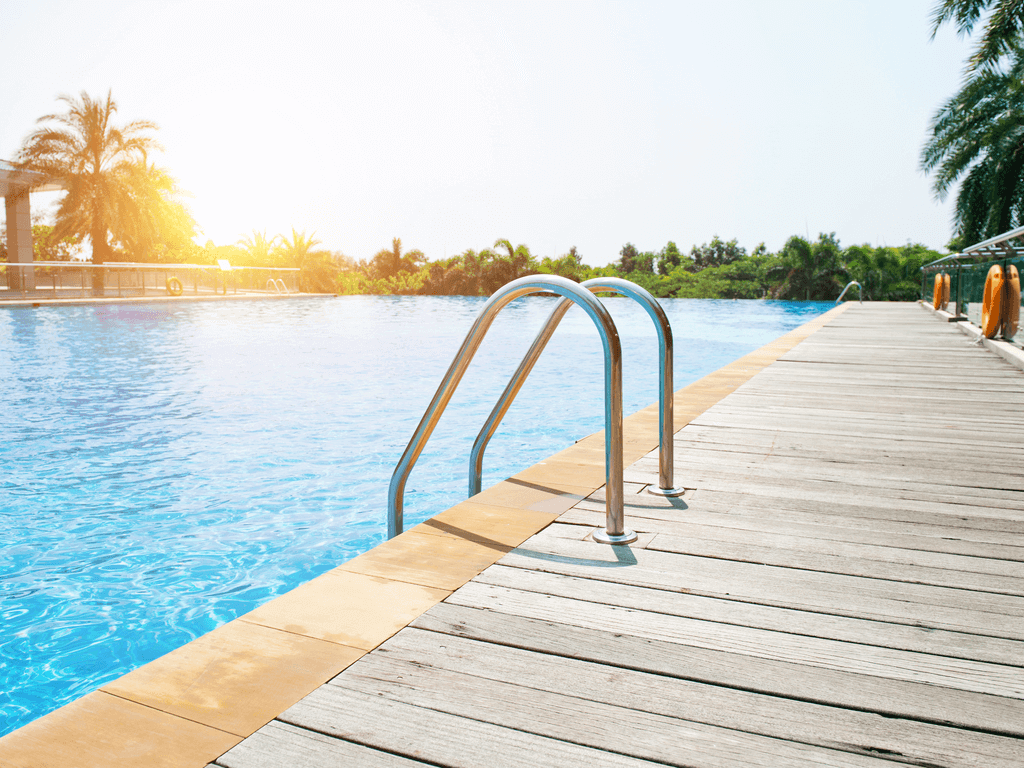What is Mineral Water for Your Pool?

There’s a misconception that chlorine does most of the cleaning for a pool. It’s actually the filtration system that does the majority of the cleaning. The chemicals take care of the small number of germs and pathogens that the filtration system doesn’t get rid of. The type of pool water you use–whether it’s chlorine pool water, saltwater, or mineral pool water–protects you from the leftovers.
This doesn’t mean you should swim in a pool that relies solely on a filtration system. Without chemicals and any type of treated pool water, you will get sick. The difference between the types of pool water is more in how they improve your swimming experience. While mineral pool water and saltwater clean a pool better than chlorine, the difference is minuscule.
What are all the Types of Pool Water?
There are three types of pool water: chlorine water, saltwater, and mineral water. They all use some percentage of chlorine, but chlorine water uses the most. Chlorine is the most common pool type as one of the oldest and safest waters to keep in a pool for extended periods of time. It also has a small installation cost compared to the other two types, but that doesn’t make it perfect. Due to the higher long-term costs of maintaining chlorine pools, and the effectiveness of chlorine, there have been advancements that led to saltwater and mineral pool water.
Saltwater pools came first, and they are not the same as saltwater from the ocean. To put it simply, it was a system where special pool salts would create chlorine particles after coming into contact with the water. That chlorine would clean the pool more effectively than the pure chlorine solution. Mineral pool water is an evolution of saltwater.
What is Mineral Pool Water?
Like with saltwater pools, you are adding a new substance to the pool’s chlorination generator. Instead of salt, you add minerals like magnesium chloride, sodium chloride, and potassium chloride. They are compounds that have chlorine, but it’s the other halves of the compounds that clean the pool better than saltwater or chlorine water.
Mineral water is more effective than chlorine, and it’s also easier to upkeep. To maintain a mineral water pool, you only need to replace the mineral cartridges each season. You have to add chlorine or salt to the other pool types regularly. So while it may be more expensive to get enough mineral pool water into your pool, in the long run, you’ll save a lot more money. If you have a fiberglass pool, your pool will last until it’s removed or some natural disaster. This means you can have water that you barely have to upkeep for decades.
What Does Mineral Pool Water Do to Your Body?
Mineral pool water is better for your body to swim through. Where saltwater pools are easier on the hair, eyes, and skin compared to chlorine pools, mineral pool water is even better. Unlike saltwater and chlorine water, mineral pool water:
- Helps hair growth
- Moistures skin
- Doesn’t wear down your clothes
- Has better water quality
- Uses fewer cleaning components
- Is softer to touch
- Doesn’t wear down your equipment as fast
- Less likely to experience an oxidation stain
You still have to balance the pool water’s pH levels. For mineral pool water, you want to lean a bit more basic, with a level between 7.4 and 7.6. If you need help understanding what tools and chemicals you need to do this, our experts can help.
Contact Aqua Leisure to See if Mineral Water is Good for Your Pool
Mineral pool water has many benefits but still isn’t as common as chlorine water. If you come to any of Aqua Leisure Pool and Spas’ showrooms at any of our locations, we can explain and show you the difference between our pools and spas. Contact us for more information and to talk to our experts about what kind of pool you want.
Posted by Aqua Leisure Pools & Spas in Pools

